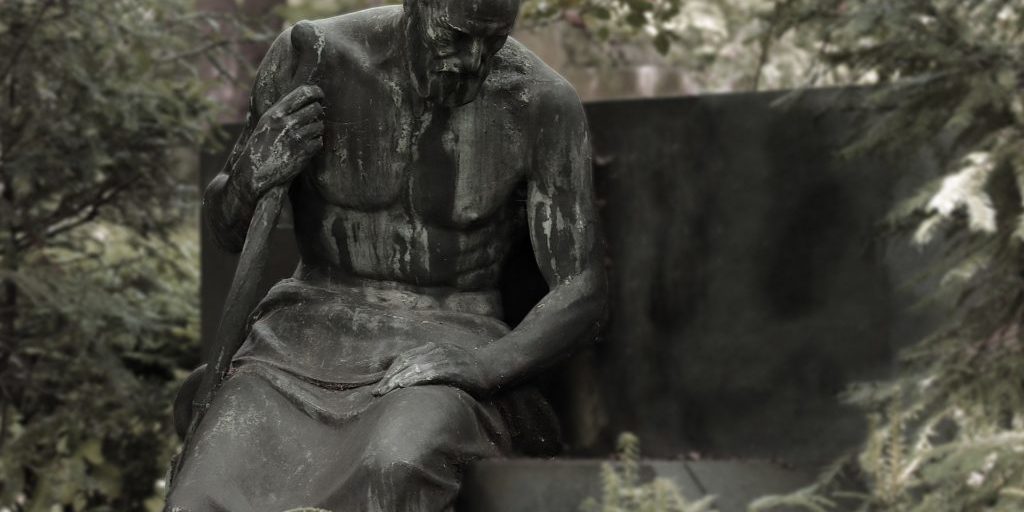
Boethius and the Sleeplessness of Macbeth: Part I
Methought I heard a voice cry “Sleep no more!
Macbeth does murder sleep” – the innocent sleep,
Sleep that knits up the raveled sleave of care,
The death of each day’s life, sore labor’s bath,
Balm of hurt minds, great nature’s second course,
Chief nourisher in life’s feast. (Macbeth, Act II.2)
These are the words of Shakespeare’s character, Macbeth, the night he sealed his fate. Much can (and has) been said about The Tragedy of Macbeth, but here I wish to call attention to one feature of the play: Macbeth’s sleeplessness. The story of this play is simple and straightforward enough: Macbeth, the Thane of Glamis and noble servant of Dunkan, King of Scotland, gets a taste for ambition and power and seeks after it headlong, to his own destruction and the destruction of many others. It is a familiar story to anyone who watched AMC’s Breaking Bad with horror, as Walter White transformed from an unassuming and timid man to an inhumane moral monster. At the first promise of glory and power, Macbeth—like Walter—experiences the awakening of a thirst that refuses to be satiated.
The Sleeplessness of Macbeth
In order to maintain this power and greatness, he sinks further and further into the mire of sin. Click To TweetMacbeth is enticed at the beginning of this play by three sister witches, who foretell two incredible predictions: first, he will be raised up from Thane of Glamis to Thane of Cawdor, and second, from Thane of Cawdor to King of Scotland. The first prediction comes true apart from any action taken on Macbeth’s part, to his great surprise, when he is greeted as Thane of Cawdor (“The Thane of Cawdor lives. Why do you dress me in borrowed robes?” – Act I.3). He discovers at this point that the previous Thane of Cawdor was a traitor and was to therefore be executed. It is at this point in the story that Macbeth is faced with a decision. With the first prediction foretold by the three witches come true, would he trust the other to fortune as well, or would he take matters into his own hand? At this point in the story, Macbeth is not so corrupt as he would become, and he totters. Lady Macbeth, however, makes up for all the resolution that Macbeth lacks: “Glamis thou art, and Cawdor, and shalt be What thou art promised,” she says to herself, speaking of her husband, “Yet do I fear thy nature. It is too full o’ th’ milk of human kindness To catch the nearest way. Art not without ambition, but without The illness should attend it” (Act I.5). Lady Macbeth fears her husband’s failure of nerve. She regrets his lack of “illness,” an illness to do what is necessary. She wants for the ambition within him to grow ever more insatiable. And so, she calls on the dark spirits to help direct her husband to the destiny of his greatness:
… Come, you spirits
That tend on mortal thoughts, unsex me here,
And fill me from the crown to the tow topfull
Of direst cruelty. Make thick my blood;
Stop up th’ access and passage to remorse,
That no compunctious visitings of nature
Shake my fell purpose nor keep peace between
Th’ effect and it. Come to my woman’s breasts
And take my milk for gall, you murd’ring ministers,
Wherever in your sightless substances
You wait on nature’s mischief. (Act I.5)
Lady Macbeth prays for the resolve to influence her husband to take matters into his own hands. She prays for the resolve to pressure Macbeth to murder Duncan. And it would seem that this twisted “prayer” is answered, for soon after, when Duncan sleeps as a guest in Macbeth’s home, and Macbeth wavers in their murderous plan, Lady Macbeth conjures up all the dark nerve he begged the spirits for. Shaming Macbeth for his “unmanly” decision to spare the innocent Duncan, Lady Macbeth, having “unsexed herself,” abandons her maternal instincts and goes horribly dark in her commitment to shock her husband into action:
… I have given suck, and know
How tender ‘tis to love the babe that milks me:
I would, while it was smiling in my face,
Have plucked my nipple from his boneless gums
And dashed the brains out, had I so sworn as you
Have done to this. (Act I.7)
Who could have foreseen such a tragic ironic twist? Boethius, that’s who. Click To TweetLady Macbeth succeeds in putting confidence back in her husband to stop at nothing to gain his ambitious goal to be king (a goal, we should remind ourselves, that was absolutely foreign to Macbeth’s mind at the beginning of the play, but which now consumes his imaginations). Up until this point, no concrete step had been taken. Macbeth is tormented, in a way, by the thought of not becoming king. But after he commits murder, and the blood of Duncan first stains his hands (and then his wife’s hands as well, when she plants Macbeth’s bloody knives on Duncan’s sleeping guards), he is tormented in quite another way. When Macbeth murdered Duncan, he murdered his own sleep. “Methought I heard a voice cry ‘Sleep no more! Macbeth does murder sleep’ – the innocent sleep” (Act II.2).
There is no rest, there is no relief, there is no safety for Macbeth, though he gains unimaginable power and greatness. In order to maintain this power and greatness, he sinks further and further into the mire of sin. Whereas contemplation of murdering Duncan left him reeling with indecision toward the beginning of the play, by its end he is frantic to maintain control: willing to murder his best friend, women, and children. And in all this, Macbeth is sleepless.
But let the frame of things disjoint, both the worlds suffer,
Ere we will eat our meal in fear, and sleep
In the affliction of these terrible dreams
That shake us nightly. Better be with the dead,
Whom we, to gain our peace, have sent to peace,
Than on the torture of the mind to lie
In restless ecstasy. Duncan is in his grave;
After life’s fitful fever he sleeps well.
Treason has done his worst: nor steel nor poison,
Malice domestic, foreign levy, nothing,
Can touch him further. (Act III.2)
Macbeth, having sent Duncan to peace (i.e., the grave) in order to gain his own peace (i.e., the position of kingship), has given Duncan true rest, in exchange for an “ecstasy” that turned out to be “restless” and “torture of the mind.” This brittle, paranoid fear becomes Macbeth’s downfall (while uncontrollable guilt becomes Lady Macbeth’s, but that’s another story for another essay). Who could have foreseen such a tragic ironic twist?
Boethius, that’s who.
This is Part I of a two-part essay on power and the fragility of Godless ambition.

